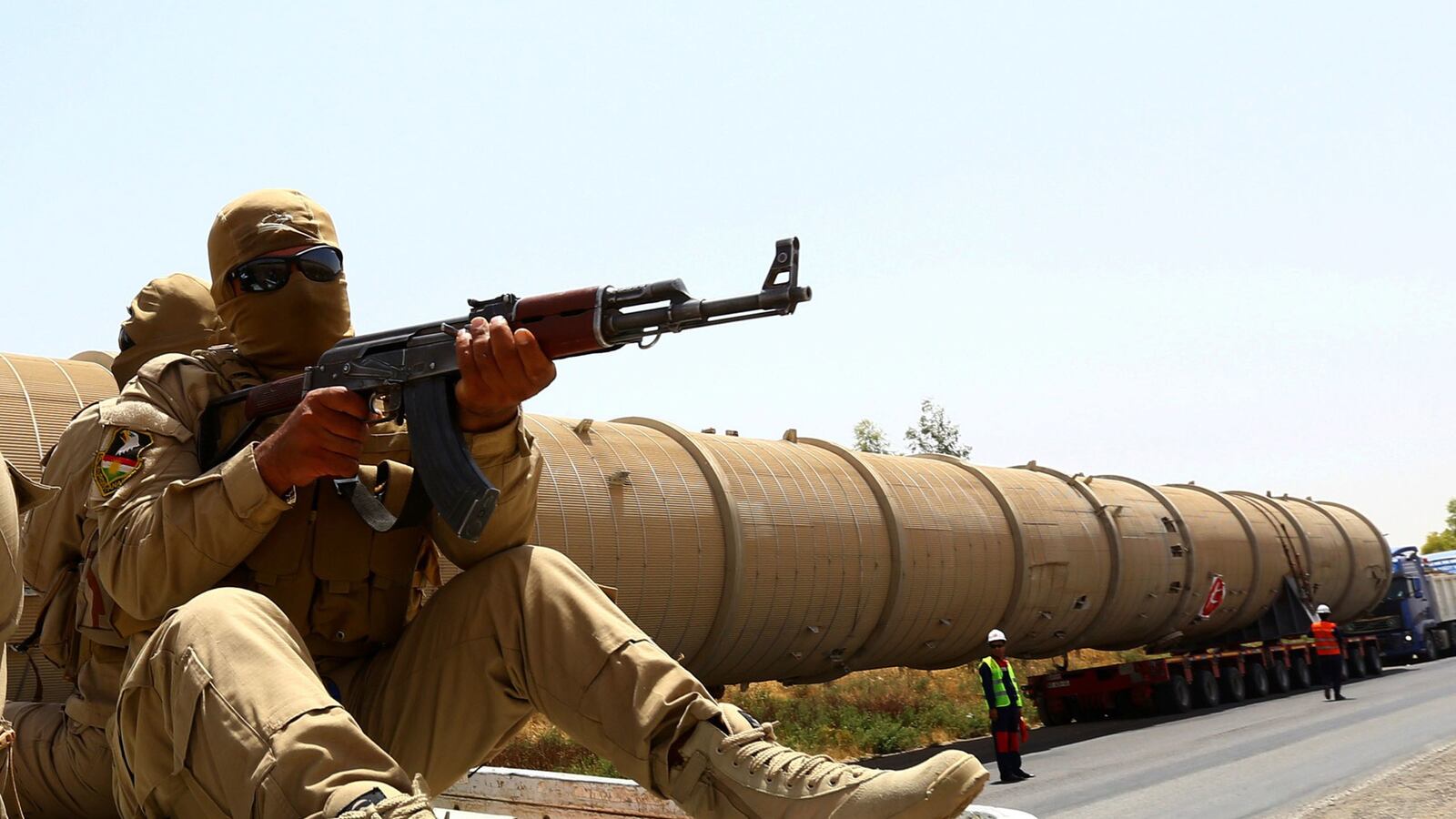LONDON — It’s now widely recognized that the so-called Islamic State is not only very brutal, it is very rich, with a larger and more sophisticated financial infrastructure than any terrorist organization before it. The self-proclaimed “caliphate” rakes in millions of dollars a month from a range of income streams, including money from donors, money from extortion and kidnapping, and, most importantly, the smuggling of cut-price oil and gas. The daily revenues are estimated at more than $3 million, which makes it easy to buy a certain level of control in the territories where the group, widely known by the English acronym ISIS, holds sway.
As Quilliam’s recent report on “Islamic State: The Changing Face of Modern Jihadism” argues, because of its financial independence ISIS is able to function (almost) like a state—a totalitarian one— coercing political loyalty with the most basic of carrot-and-stick models. Its ability to provide services and subsidize everyday goods gives it a political foundation that many of its subjects see as preferable to the governments of Damascus or Baghdad. Without that financial clout, the ties ISIS has with the population it rules would be sorely tested and its authority could become more precarious.
With that in mind, it makes sense that the US-led forces aiming to degrade and destroy ISIS should begin with an assault on its financial infrastructure. That’s the purpose of the coalition’s strong focus on the targeting of ISIS oil and gas facilities, including the major installation at Baiji, in Iraq, that has just been retaken by Iraqi government forces and allied militias.
But from afar—from Washington, from London—the targeting of ISIS revenues is sometimes seen as a quick and easy panacea for the crisis in Iraq and Syria, and that it is not.
Obstructing the ability of ISIS to produce, refine and smuggle fossil fuels will certainly complicate matters for the group, but it could also end up helping it, at least in the short run. Coalition strategists must recognize that attacks on its infrastructure could create a “rally ‘round the black flag” effect. Already, jihadists the world over have been drawn to the anti-“Crusader” rhetoric with which ISIS has responded to international air strikes in Syria and Iraq. Civilians in the region could begin to harden in their pro-ISIS resolve if a sustained bombing campaign leaves them without fuel for the winter. Passive acceptance could become active support.
It is an uncomfortable truth that the imposition of ISIS rule has brought a measure of stability to a part of the world that has, in recent years in particular, become accustomed to crippling levels of political chaos and economic deprivation. Of course, this “stability” only works for those willing to submit to extremist Islamist rule, but it is stability nonetheless. And, if this is once again removed, the local population will likely blame, first and foremost, the anti-ISIS coalition. In the short term, attacks on the physical sources of ISIS income will strengthen the political position of the jihadists. Such an outcome, because it is unavoidable, must be anticipated.
If ISIS is forced to shift its economic foundations away from oil and gas, moreover, we can expect to see a redoubling of efforts to raise funds from its other two income streams, patronage and extortion. As such, it is absolutely imperative that governments—particularly in the Gulf—crack down on their jihadist sympathizers, for it is those individuals who could keep the group afloat. At the same time, we should expect a rise in kidnapping for ransom. To meet that challenge, it is high time that governments around the world agreed on a unified policy towards hostage taking. As long as there are states willing to negotiate payments with groups like ISIS, there will be a financial incentive to kidnap. It is a horrific and inconvenient truth, but paying ransoms to free hostages invariably worsens the problem in the long-term.
There is no question that undermining the financial foundations of ISIS is an important first step to rolling back the group. However, it will not defeat the ideology that drives it. Policymakers must recognize that, while degrading and destroying the group may begin with the crippling of its economic capabilities, it does not end there. Political measures are at the heart of the fight against ISIS, and they always will be.





